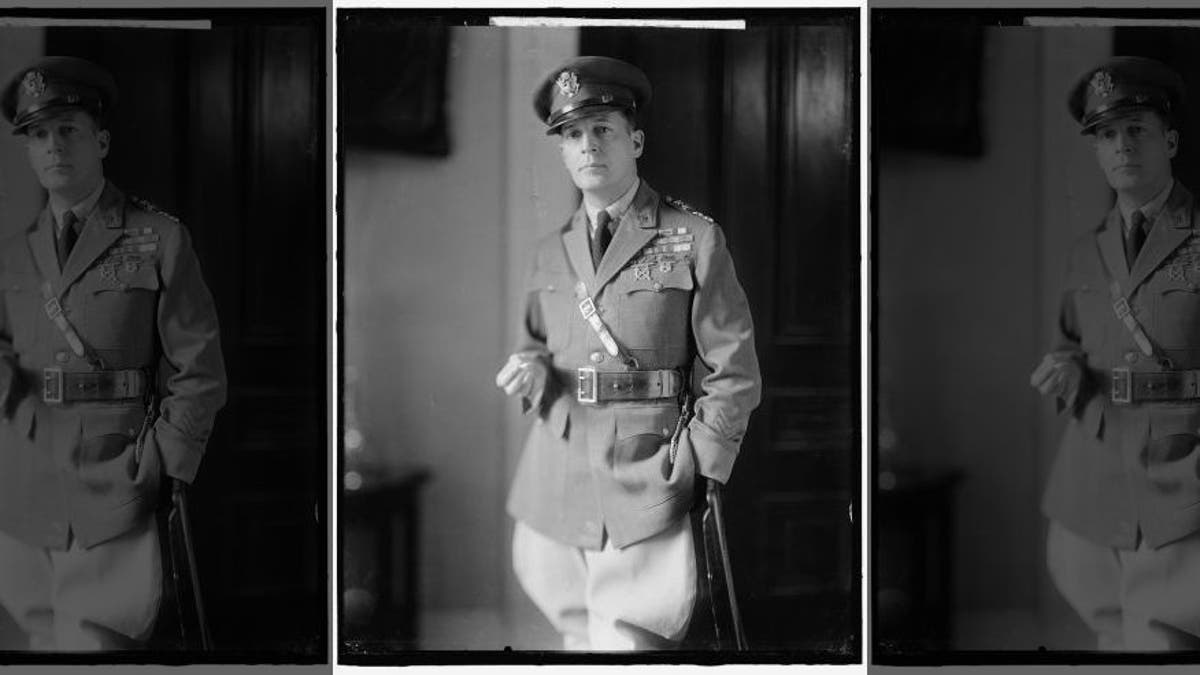
The man who won 24 Olympic gold medals for the United States isn't Michael Phelps or Mark Spitz or even Jesse Owens. In fact, he didn’t compete in any Olympic sport. Yet he swung America’s attention to the importance of the Olympic Games as no other American had ever done -- and turned Olympic gold into a rebirth of the American spirit.
He was General Douglas MacArthur.
We usually think of MacArthur as one of the supreme commanders of World War II, liberator of the Philippines and rebuilder of a shattered postwar Japan -- and the genius behind one of the greatest military master strokes in history: the landing at Inchon during the Korean War.
But in 1928 MacArthur was president of the U.S. Olympic Committee, and led his country’s team to some of its most glorious moments -- and laid the foundations for America’s love affair with the Olympics ever since.
At the time the modern games had only been held seven times since their founding in 1896. Many Americans wondered how much time and money the United States should spend -- or waste -- on the Olympic effort. So when the president of the U.S. Olympic Committee died suddenly, the other members turned desperately to the former superintendent of West Point and World War I hero, Major General Douglas MacArthur.
He was already famous for his advocacy of sports at West Point; his message to cadets about athletics, “On the field of friendly strife are sown the seeds that . . . bring forth victory,” stands near the West Point football stadium to this day.
MacArthur accepted the job with enthusiasm, and threw himself into the work as if he had been planning a military campaign. He met with coaches, gave inspiring speeches to sponsoring committees, harangued his coaches and his athletes -- even supervised their training and workout schedules.
When the team arrived in Holland for the games, the outlook was not bright for our entrants, MacArthur wrote later, but he was determined that the United States should win. He became in effect Coach-in-Chief, attending every practice he could and meeting with athletes to evaluate their performance and motivate them to a higher level. MacArthur admitted he rode them hard: "I stormed and pleaded and cajoled." He told them that America was the greatest nation in the world and therefore it deserved to have the greatest Olympic team.
We have not come 3,000 miles just to lose gracefully, he thundered, we are here to win, and win decisively.
When the U.S. boxing team's coach threatened to withdraw from further competition after a blatantly unfair decision, MacArthur stopped him cold. Americans never quit, MacArthur barked. It became the motto for the entire team.
MacArthur’s fierce effort paid off. The United States had won 24 gold medals, more than the next two most-decorated countries, Finland and Germany, put together. The U.S. team had set 17 Olympic records and seven world records. When they returned to the United States, MacArthur wrote up a stirring report for President Coolidge on his team’s performance, and urged that support for the Olympic Committee be put on a more regular basis with a $2 million endowment fund.
Nothing has been more characteristic of the genius of the American people than their genius for athletics. MacArthur told the president. The experience, he said, "has made me proud to be an American."
One of his old field commanders, General Charles Summerall, wrote to MacArthur: “You have not only maintained the reputation that Americans do not quit, but that Americans know how to win.
MacArthur had turned the Olympic Games into a source of national pride, as well as a national priority. Victory there has remained a symbol of the American spirit -- one we need this year, perhaps, more than ever.








































